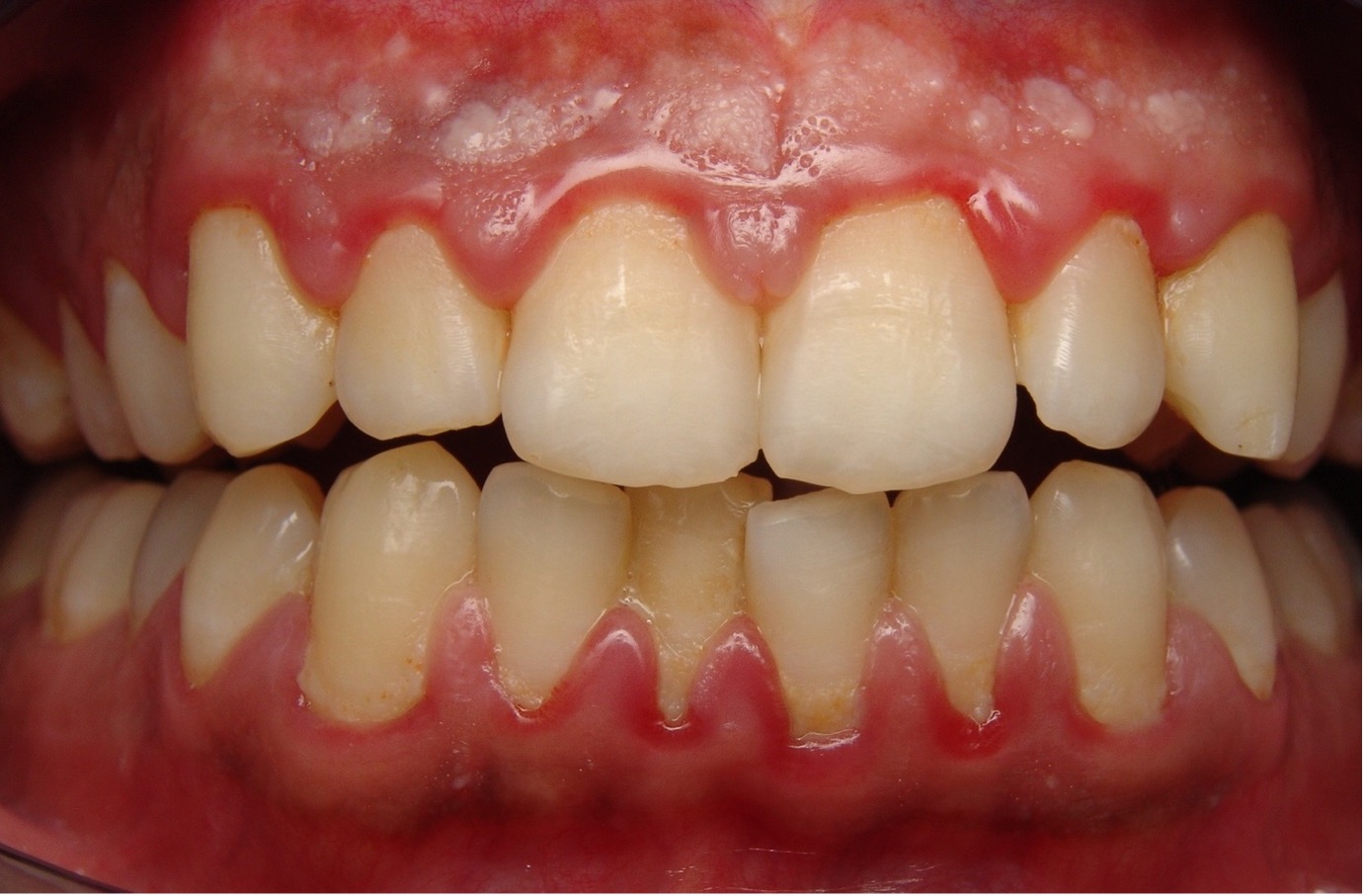Gum disease, also known as periodontal disease, is a common but often overlooked condition that can have serious implications for both oral and overall health.
It starts as gingivitis, characterized by red, swollen gums that bleed easily, and can progress to periodontitis, where the gums pull away from the teeth, forming pockets that can become infected. If left untreated, gum disease can lead to tooth loss and has been linked to various systemic health issues.
In this issue, we will discuss prevention and risk factors associated with Gum Disease.
Risks of Gum Disease
- Tooth Loss: One of the most direct consequences of untreated gum disease is the loss of teeth. As the disease progresses, the supporting structures of the teeth, including the bone, are destroyed. This can cause teeth to become loose and eventually fall out or require extraction.
- Infections: The pockets that form between the teeth and gums in periodontitis can become breeding grounds for bacteria, leading to infections. Severe infections may require medical intervention and can spread to other parts of the body.
- Heart Disease: Studies have shown a correlation between gum disease and cardiovascular conditions. The bacteria from infected gums can enter the bloodstream, contributing to the formation of arterial plaque and increasing the risk of heart attacks and strokes.
- Diabetes Complications: Gum disease can make it more difficult to control blood sugar levels, exacerbating the complications associated with diabetes. Conversely, individuals with diabetes are more susceptible to infections, including those in the gums.
- Respiratory Issues: The bacteria from periodontal disease can be inhaled into the lungs, potentially causing or worsening respiratory conditions such as pneumonia, especially in individuals with preexisting lung conditions.
Prevention of Gum Disease
Preventing gum disease is largely about maintaining good oral hygiene and making regular visits to the dentist. Prompt diagnosis is keyHere are some key steps to take:
- Regular Brushing and Flossing: Brush your teeth at least twice a day with fluoride toothpaste and floss daily to remove plaque and food particles from between the teeth and below the gumline.
- Professional Cleanings: Visit your dentist regularly for check-ups and professional cleanings. Dentists can remove tartar that can’t be removed by brushing and flossing alone and check for early signs of gum disease.
- Periodontal Treatment: A periodontist is uniquely trained to treat more advanced cases. This usually means pocket depths are between 3mm to 10mm in depth with bleeding.
- Healthy Diet: Eat a balanced diet that limits sugary snacks and beverages. A diet rich in vitamins and minerals, particularly vitamin C and calcium, supports gum health.
- Quit Smoking: Smoking is a significant risk factor for gum disease. Quitting smoking can greatly improve your oral health and reduce your risk of developing gum disease.
- Use Antibacterial Mouthwash: Incorporating an antibacterial mouthwash into your oral care routine can help reduce the bacteria that cause gum disease.
By understanding the risks associated with gum disease and adopting preventative measures, you can maintain healthier gums and reduce the likelihood of severe complications. prioritizing oral health is an investment in your overall well-being.
Dr. Kendal V. O. Major is Founder and CEO of Center for Specialized Dentistry which is a comprehensive family dental practice operating in Nassau. He is the first Bahamian Specialist in gum diseases and dental implants since 1989. He also is a certified Fast braces provider, having attained the designation as Senior Mastership status. His practice is located at 89 Collins Avenue, Nassau at (242)325-5165 or [email protected].


Diabetes related swelling and bleeding





